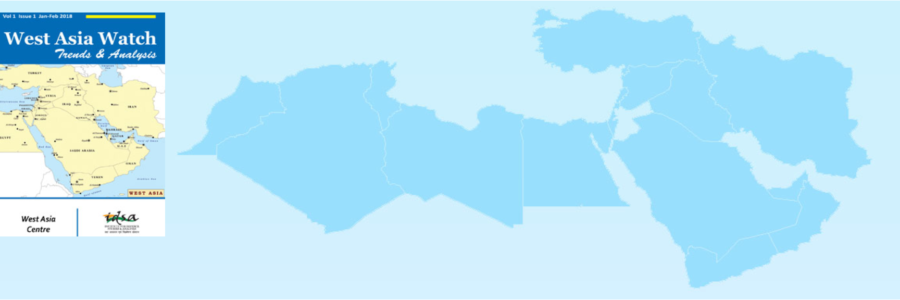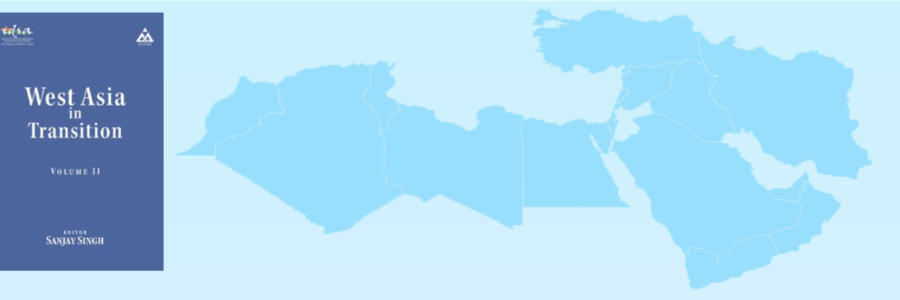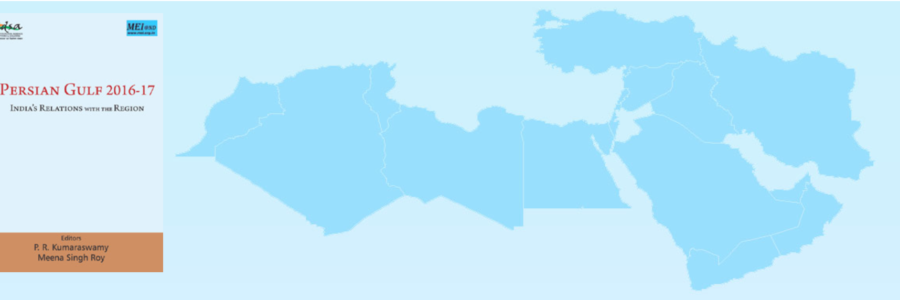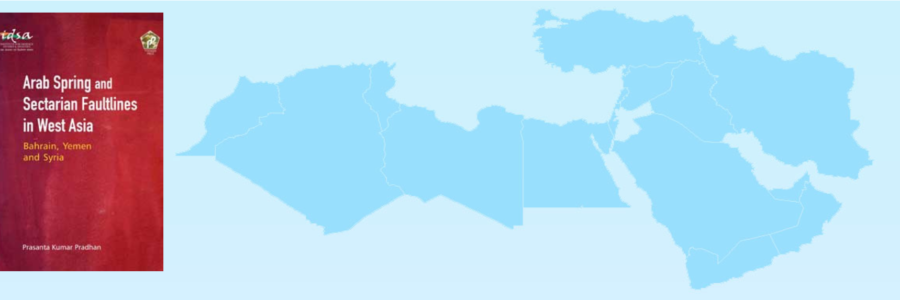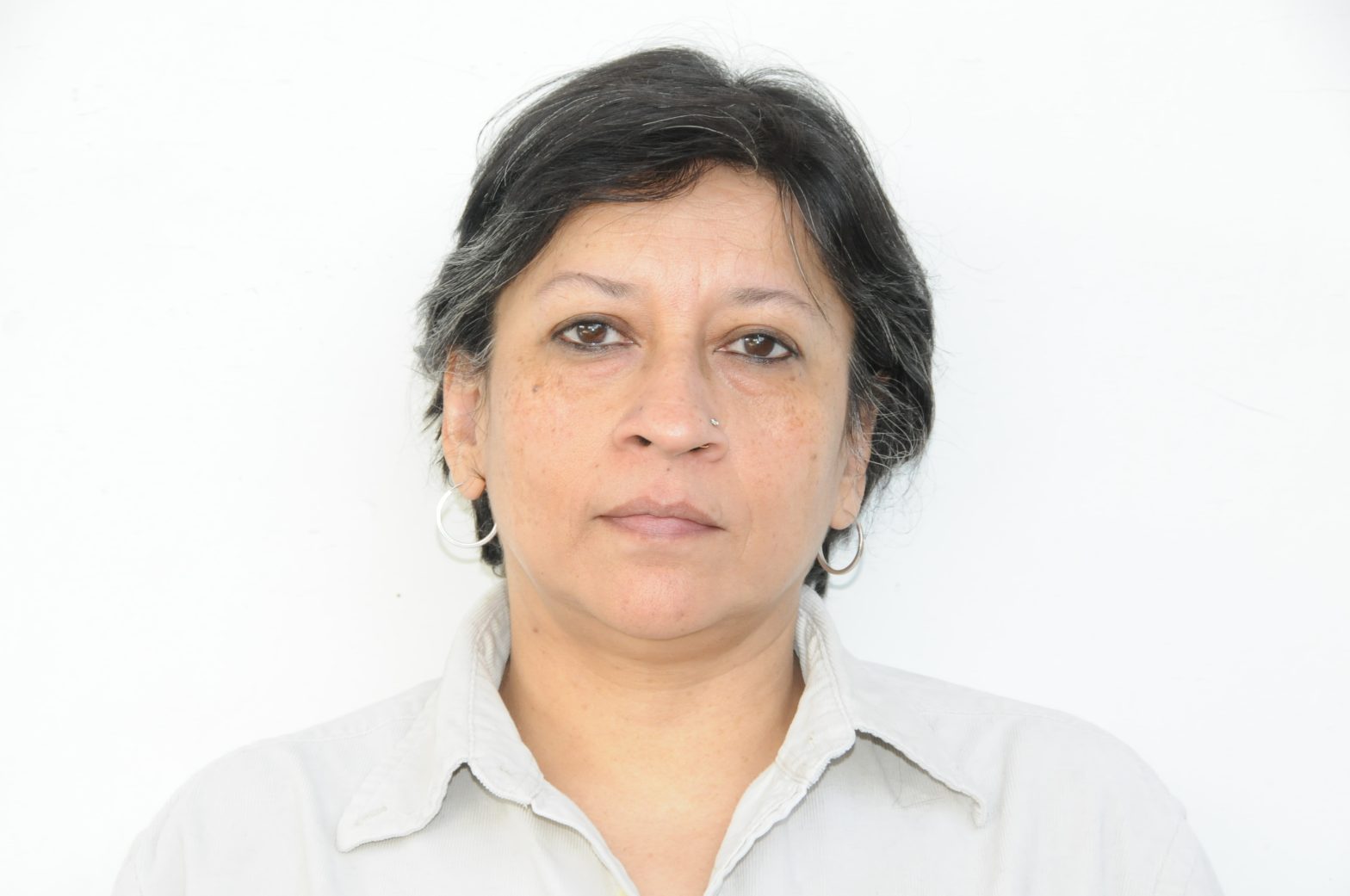Türkiye’s Foreign Policy Under The AKP: Implications and Challenges for India
- Publisher: Pentagon Press
2023
During the first two decades of the twenty-first century, besides the structural factors namely geography, history, politics, international system and the world order, five conjunctural factors dominated Turkish foreign policy behaviour and conduct. These include the Strategic Depth (Stratejik Derinlik) doctrine with ‘zero-problem’ with neighbours embedded in it followed by the Blue Homeland (Mavi Vatan) doctrine focused on enhancing Türkiye’s maritime presence in its immediate neighbourhood and the periphery. Thirdly, and arguably the most important, is the personality of Recep Tayyip Erdogan who as a dominating figure in contemporary Turkish politics has shaped not only the political discourse but foreign policy praxis. Erdogan’s personalised style of interventions has undoubtedly had a profound impact on Ankara’s interactions and engagements with the wider world. Finally, pan-Islamism and neo-Ottomanism are two important drivers in Turkish foreign policy and were visible notably in the Middle East and North Africa region and came into prominence in the wake of the Arab Spring uprisings. In this context, it is pertinent to ask what are Turkish foreign policy ambitions and how do these impact India? Given that Ankara has expanded its presence, or at least is striving to expand it, in the geographically contiguous Southwest Asia region that connects India to the Middle East, the question how Indian foreign policy should view Türkiye becomes even more important. The bilateral challenges between India and Türkiye make it even more pertinent for Indian scholars and policymakers to take a deep and hard look at Türkiye’s foreign policy doctrines and praxis. This book is an attempt in that direction. It systematically analyses the structural and conjunctural factors in Turkish foreign policy and notes that Türkiye’s foreign policy is embedded in a glorified identification of the past, both Ottoman and Kemalist, and in its geographical location as a multi-regional actor. However, the foreign policy ambitions are limited by Türkiye’s economic performance and political sliding. From an Indian viewpoint, the book identifies Pakistan as a limiting factor so far as the bilateral relations are concerned and recommends that New Delhi should use economic leverage and diplomacy to de-hyphenate the Pakistan factor.
- ISBN: 9788195189427 ,
- Price: ₹ 995/-
- E-copy available
India and the Arab Unrest: Challenges, Dilemmas and Engagements
This book is a study of India’s political, diplomatic and security challenges caused by the changing geopolitical and security dynamics in the Middle East and North Africa (MENA) region. Like many other countries, India has been deeply affected by the unrest in the Arab world. As India has several long-term economic, political and security stakes in the region, it has adopted extreme caution in its responses towards the developments in the MENA region since the beginning of the Arab unrest. This book examines India’s policy of non-intervention and opposition to military intervention in the internal and regional affairs of the MENA region. In response to the ongoing conflict, India has engaged with several regional organisations and multilateral forums to work together and find political solutions to the regional conflicts. The book also examines new developments, such as the rise of the Islamic State, and the new security challenges this has introduced. Despite the regional turbulences, the momentum of India’s engagements with the countries of the region has been maintained and India has been building mutually beneficial partnerships in diverse fields. In this context, the book examines the response, approach and the policies India has adopted to protect and promote its interests during the last ten years of unrest.
- ISBN: 9780367618506 ,
- Price: £96.00
Education System in Saudi Arabia: Of Change and Reforms
- Publisher: Palgrave Macmillan
2021
This book is a comprehensive study on the education system of Saudi Arabia, placing the reforms and changes it has undergone in the past two decades within the context of the historical evolution of the education system. An education system cannot be seen in isolation of the society; it plays a significant role in shaping the individual, state and the society, that in turn, have a bearing on the education system and its evolution. Therefore, this book locates Saudi education in the backdrop of the changes in the society, how they have facilitated or hindered the education reforms and how the education reforms have impacted the society. The book does not ignore the immediate trigger for the beginning of a comprehensive reforms process but goes beyond it to find much deeper socio-political and economic rationales that paved the way for the reforms. It provides a nuanced understanding of the interplays of various socioeconomic as well as political factors that have shaped the education system in Saudi Arabia.
- ISBN: 978-981-15-9172-3,
- Price: 84,99 €
Changing Security Paradigm in West Asia: Regional and International Responses
- Publisher: KW Publishers
2020
The states of West Asia continue to grapple with dramatic changes taking place in the domestic and regional environment. Security has emerged as a significant concern for them. The political upheavals, civil strife, sectarian violence, and terrorism in the area have implications for the regional and global order. As the region grapples with myriad socio-economic problems, many extra-regional players and non-state actors, and a few regional ones, are attempting to carve out their own areas of influence. These developments across West Asia demand constant monitoring and careful analyses. This book is a collection of essays exploring various aspects of the changing security paradigm in West Asia and the regional and international responses.
- ISBN: 978-93-89137-59-0 ,
- Price: ₹.1280/-
- E-copy available
Erdogan’s Turkey: Politics, Populism and Democratisation Dilemmas
The nearly two decades of Adalet ve Kalkinma Partisi (AKP; Justice and Development Party) rule has raised a number of questions on the advancement or reversal of democratisation in Turkey. Besides the partisan debate on increasing authoritarian behaviour of Erdogan, there have been limited attempts to comprehensively examine the way AKP has shaped the Turkish politics in the context of the democratisation debate.
India’s Saudi Policy: Bridge to the Future
- Publisher: Palgrave Macmillan
2018
The book traces India’s Saudi Policy and locates the current state of bilateral relations and the challenges it faces. It argues that during the Cold War the relations were largely shaped by the Pakistan factor which in turn inhibited both sides from exploring the importance and value of one another. As a result, the relations were largely transactional and marginal. The end of the Cold War coincided with two interesting developments, namely, significant growth in India’s economic power and influence and the de-hyphenation of Pakistan from its Middle East policy. This resulted in greater political engagements between India and Saudi Arabia and was strengthened by the growing energy trade ties. For long expatiate population and haj have been the backbone of the relations, and they have been new instruments as India looks to enhance its engagements with the Kingdom through investments opportunities, political contacts, shared security concerns and strategic cooperation. India’s Saudi policy, however, face many challenges most importantly the regional instability, the Iran factor, low oil price and the international dynamics. The book will be the first comprehensive work on the India-Saudi relations. Though targeting a wider audience, it will be academically grounded and based on primary sources collected from India and Saudi Arabia.
- E-book ISBN: 978-981-13-0794-2, Hardcopy ISBN: 978-981-13-0793-5,
- Price: E-book - E-book - $84.99, Hardcopy - $109.99
Ideology, Politics and New Security Challenges in West Asia
- Publisher: Pentagon Press
2018
Ideology, Politics and New Security Challenges in West Asia, is the collection of papers presented during the international conference on West Asia on January 19-20, 2016. As dramatic changes are taking place in domestic and regional political environments in most countries of the West Asian region, this volume provides an in-depth assessment of the changing security paradigm in the West Asian region, examines the conflicting ideologies and their implications and looks at the resurgence and spread of extremism and terrorism in West Asia, focusing on the ISIS and its impact for the region and beyond. Besides, this edited volume highlights the role and involvement of the extra-regional powers while providing insight into the geopolitical shift in the global energy scenario and its implications for the supplier and consumer countries. Finally, the book examines India's growing partnership with the region, explaining various opportunities and challenges.
- ISBN: 978-9386618535,
- Price: ₹1,050/-
West Asia in Transition – Volume II
- Publisher: Pentagon Press
2018
West Asia in Transition-Volume II is the result of a project launched by the Delhi Policy Group (DPG) in 2016 to study the rapidly changing socio-political and economic structures as well as emerging trends in West Asia. The publication is a collection` of essays by senior diplomats, academics and young researchers on different aspects of the profound transformation taking place in the West Asian region.
- ISBN: 978-93-86618-17-7,
- Price: ₹.1295/- $34.95/-
- E-copy available
Turmoil in West Asia: The Sectarian Divide Shapes Regional Competitions
Five years after the Arab Spring, West Asia is witnessing two major military conflicts in Syria and Yemen. Several states are deeply polarised and at the edge of breakdown, and there is proliferation of jihadis across the region, engaged in extraordinary brutality against enemy states and “heretic” communities.
The Shanghai Cooperation Organisation: India Seeking New Role in the Eurasian Regional Mechanism
India, in 2005, acquired the observer status in the SCO. It has also expressed its desire to join the SCO as a full member. It is believed that China would try and delay India's entry as full member in this regional organisation, whereas Russia along with the Central Asian countries would continue to support India's full membership in the SCO. New regional and global order would demand greater cooperation between India and China in future.
India’s Relationship With The Gulf Cooperation Council: Need To Look Beyond Business
India-GCC relationship is growing stronger by the day as both realise the potential and importance of each other. Trade and commerce is the most important pillar of the India-GCC relationship. Success of high volume of trade and commerce between India and GCC revolves around a high degree of trade and economic complementarity as both caters to each other's economic demands.
Turkey and its Quest for Leadership Role in the West Asian Region
Turkey is one of the major regional powers in West Asia. Born from the ashes of the Ottoman Empire, Turkey has taken time to consolidate and establish itself as a prosperous modern state. It has overcome military coups and economic crisis in past decades and is now emerging as revitalized country with a host of opportunities for expansion. The countries of the region have often seen it with contempt and suspicion due to the Ottoman legacy as also its Western orientation in earlier part of its short modern history.





